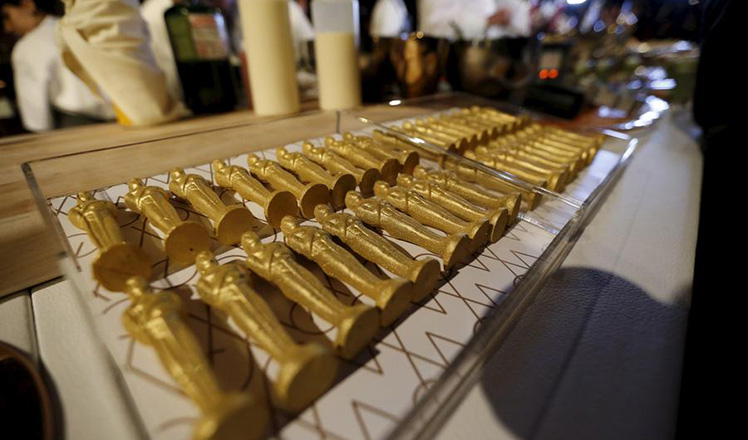Market to set rail ticket prices
Updated: 2016-02-23 07:17
(China Daily)
|
||||||||
 |
|
Train attendants prepare to board at Nanjing Station, East China's Jiangsu province, Nov 10, 2015.[Photo/Xinhua] |
High-speed railways are the pride of the nation. The country's network of 19,000 kilometers of high-speed train lines is the longest in the world and connects almost all the major Chinese cities. Traveling by high-speed train has become part of more and more people's lives. Of every 10 people who traveled by train last year, four were on a fast track.
That is why it has drawn so much public attention that the operator of the "bullet trains" has been given free rein to set ticket prices.
According to a recent announcement by the National Development and Reform Commission, China's top economic planning agency, China Railway Corp is being empowered to decide how much high-speed train tickets cost in light of "market competition and passenger distribution". Previously, the price was set by the commission itself.
This move should be welcomed. As an enterprise in a market economy, CRC should be freed from the shackles of administrative intervention. Only by doing so can it make the best use of resources, raise efficiency, improve profits and better serve passengers.
Due to the huge amounts of money needed for the development of high-speed railways, the government has constantly invited private capital to contribute, but to little avail.
The increasing debts of CRC, estimated at nearly 4 trillion yuan ($615 billion) in 2014, have hampered its ambitious construction blueprint. The pricing reform will hopefully help the railways make a profit which will help spark the enthusiasm of private capital to invest in them.
The reform is long overdue as the nation's railways are one of the last State sectors still reminiscent of a rigid planned economy. The aviation sector has long priced tickets based on seasonal changes in demand and supply, and has prospered, benefiting both airlines and passengers. So have highways and river transport.
Yet many people worry the reform may lead to unreasonably high prices for high-speed train tickets, because CRC enjoys a monopoly as the country's only operator of high-speed trains. Such concerns must be addressed.
Thus the CRC should take into account the interests of the general public as well. Public hearings are necessary and discounts for not so busy lines or in off-peak seasons must be guaranteed. The government must play a supervisory role to make sure the reform is not a one-way street for excessive price increases.

 The world in photos: Feb 15 - 21
The world in photos: Feb 15 - 21
 China Daily weekly pictures: Feb 13-19
China Daily weekly pictures: Feb 13-19
 Lantern Festival in the Chinese paintings
Lantern Festival in the Chinese paintings
 Meet Melanie, the real-life mermaid
Meet Melanie, the real-life mermaid
 Samsung unveils new products at mobile conference in Spain
Samsung unveils new products at mobile conference in Spain
 88th Academy Awards Governors Ball Press Preview
88th Academy Awards Governors Ball Press Preview
 Chinese photographers' work shines in major photo contest
Chinese photographers' work shines in major photo contest
 Egg carving master challenges Guinness World Record
Egg carving master challenges Guinness World Record
Most Viewed
Editor's Picks

|

|

|

|

|

|
Today's Top News
What ends Jeb Bush's White House hopes
Investigation for Nicolas's campaign
Will US-ASEAN meeting be good for region?
Accentuate the positive in Sino-US relations
Dangerous games on peninsula will have no winner
National Art Museum showing 400 puppets in new exhibition
Finest Chinese porcelains expected to fetch over $28 million
Monkey portraits by Chinese ink painting masters
US Weekly

|

|








